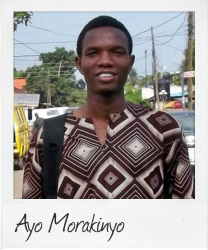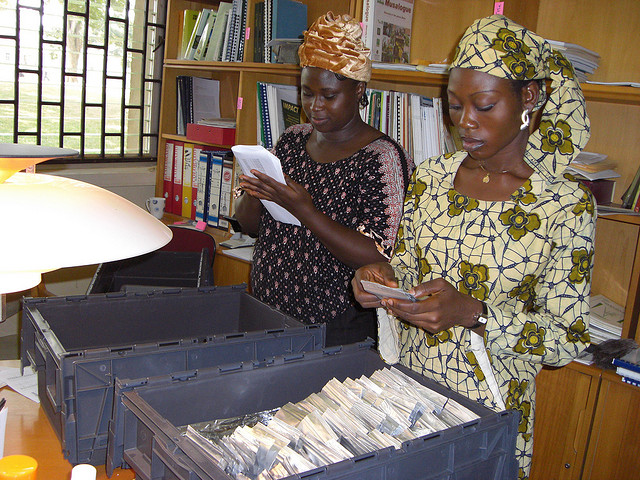"The employment opportunity is yours"
October 11th, 2013 The high rate of youth unemployment is a serious issue in Nigeria. However, one programme has been able to successfully transition some of the capital’s young people into the working world, reports Ayo Morakinyo, 26, a Commonwealth Correspondent from Nigeria.
The high rate of youth unemployment is a serious issue in Nigeria. However, one programme has been able to successfully transition some of the capital’s young people into the working world, reports Ayo Morakinyo, 26, a Commonwealth Correspondent from Nigeria.
Youth unemployment is an issue of global concern because millions of young people in densely populated communities around the world are still without work.
In Nigeria, this problem has manifested in large-scale proportions. With a population of 165.2 million, youth joblessness in the West African country has been estimated at 26 per cent of the population – 43 million people. Fifty-three per cent of this number has been deemed unemployable.
When young people graduate from the university today, many of them go for training and sit professional examinations in order to increase their chances of employment. But even with such costly certifications, employment is not automatic.
Some Nigerian youth decide to take up employment that is unrelated to their areas of academic study, while the majority join a massive pool of unemployed persons in the labour market. Hence, the future is uncertain for too many educated Nigerian youths.
To intervene in the situation in Lagos State, the Afterschool Graduate Development Centre (AGDC) runs Lagos Ignite, a recurrent training programme. Under the leadership of Ibukun Awosika and co-sponsored by the Lagos State government along with other corporate organisations, its original purpose was to equip young residents through both entrepreneurial and employability training. So far, the group has been able to train and initiate the employment of thousands of youth via teacher and health worker conversion programmes as well as vocational studies, agricultural training, employment and enterprise development and waste management programmes.
AGDC also organises the Lagos Youth Stakeholder Forum, an annual event that creates a neutral platform of information exchange between the Lagos State governor, Babatunde Raji Fashola (Senior Advocate of Nigeria), and over 1 000 young Lagosians.
At this year’s meeting in September, the governor revealed why he decided to invest in the work of AGDC. On the first day of October 2010, he realised that unemployment was a major challenge for the youth in Lagos State and made a public commitment to respond to their yearning for economic empowerment. As such, when AGDC introduced him to the initiative, he decided to adopt the project and brought on the state government as a key partner.
“Though the figures of unemployment may be high, the more we chip off unemployment, the more the employed people we create,” the governor stated.
Fashola advised the youth to apply cultural innovation into entrepreneurship and gave an instance of the party culture in Lagos. According to him, research conducted by his government recently showed that about 1.2 billion Naira was spent by Lagosians on social functions in just five local government areas over 12 weekend nights. This suggests that a number of people – along with employment opportunities – are responsible for the support services such as food, beverages, stewarding, security, comedy and musicals that made the events successful.
Additionally, in a bid to discourage emigration, he stated that the opportunity for growth was better in Nigeria than abroad. He stressed that these opportunities will not be realised if Nigerian youths do not start creating jobs for themselves: “The opportunity is yours, rise up and take it.”
photo credit: Global Crop Diversity Trust via photopin cc
———————————————————————————————————————————————-
About me:
I am an animated and artistic writer hailing from the southwest region of Nigeria. I hold a degree in electronics and electrical engineering and am certified as an IT professional.
On days when I am not busy with engineering and management activities, I write prose poems, short stories and journalistic commentaries. In the coming years, I hope to help other people’s lives around the world and aid in the reformation of Africa.
…………………………………………………………………………………………………
Opinions expressed in this article are those of the author and do not necessarily represent the views of the Commonwealth Youth Programme. Articles are published in a spirit of dialogue, respect and understanding. If you disagree, why not submit a response?
To learn more about becoming a Commonwealth Correspondent please visit:
http://www.yourcommonwealth.org/submit-articles/commonwealthcorrespondents/
…………………………………………………………………………………………………




